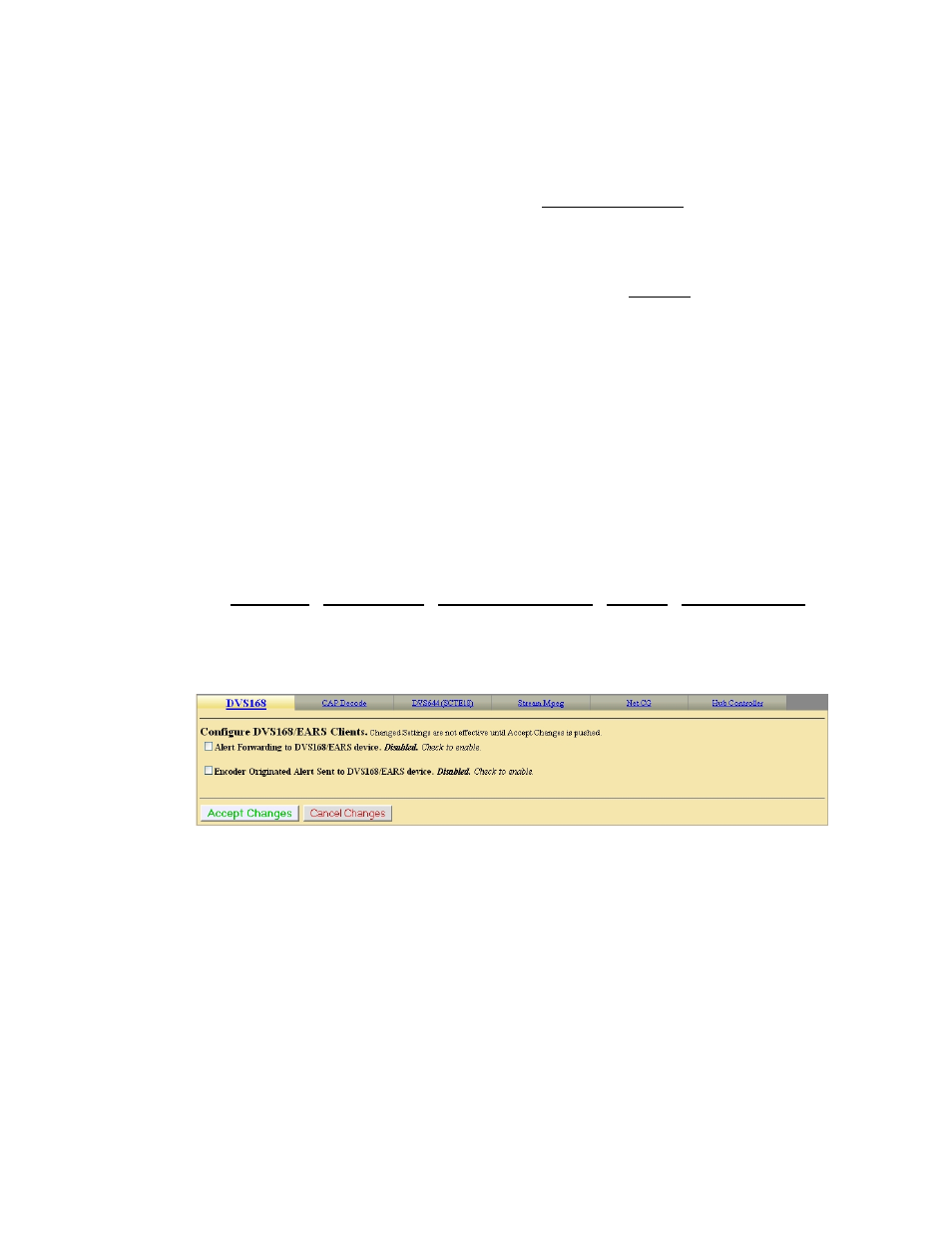Monroe Electronics R189se User Manual
Page 59

- 54 -
Automatic Required Weekly Test to occur by changing the between times, and the
On Days followed by clicking the Accept Time Changes button.
Configure One-Button and Automatic Weekly Test.
Set FIPS locations for and Duration of the weekly test.
Select a FIPS location(s), and then click Add Selected FIPS.
The FIPS location(s) added will appear in the list of Current FIPS locations for
One-Button Weekly Test to the right.
You can edit the subdivision in the first field for each location.
You can remove a FIPS location from the list-using Remove.
You can Enable/Disable the front panel button activation of a Weekly Test.
4.10 Setup > Net Alerts
One of the benefits of the One-Net’s inherent network nature is that it can support a variety
of methods for network forwarding/broadcast of EAS alerts. Presently the One-Net
SE
supports DVS-168 network protocol, DVS-644/SCTE-18 alert messaging, Streaming Mpeg,
and Remote activation of relays using the Hub Controller Model R190A. If interfaces are not
available, follow the link to License Key Manager to Setup > Server (see section 5.1). Select
one of the protocols for editing by using the provided tabs at the top of the Net Alerts
Configuration page. A separate interface is provided per Network protocol interface type.
There are four tabbed sub-pages on the Setup Net Alerts screen. They are:
EAS NET CAP Decode DVS664 (SCTE 18) Net CG Hub Controller
4.10.1 DVS168
If DVS-168 is available on the One-NetSE, use this tab to enable this protocol for
forwarding and/or sending alerts.
Setup > Net Alerts > DVS168
Alert Forwarding to DVS168/EARS device.
Placing a check in this box will allow Alerts that are received from a Broadcaster to
be forwarded through the One-Net
SE
and sent out using the DVS168 protocol.
Encoder Alert Send to DVS168/EARS device.
Placing a check in this box will allow Alerts that are originated by the One-Net
SE
to
be sent out using the DVS168 protocol.
Alert Forwarding and sending to DVS168/EARS Client
Once forwarding and/or sending have been enabled, four information fields must be
configured to identify the DVS-168/EARS host. See the provided screenshot. Enter the IP
address, the IP port, the FTP user and password, select Audio File Sample Size, and the
Audio File Sample Rate (Default is 16000 Sample/sec). Alerts with all FIPS codes can